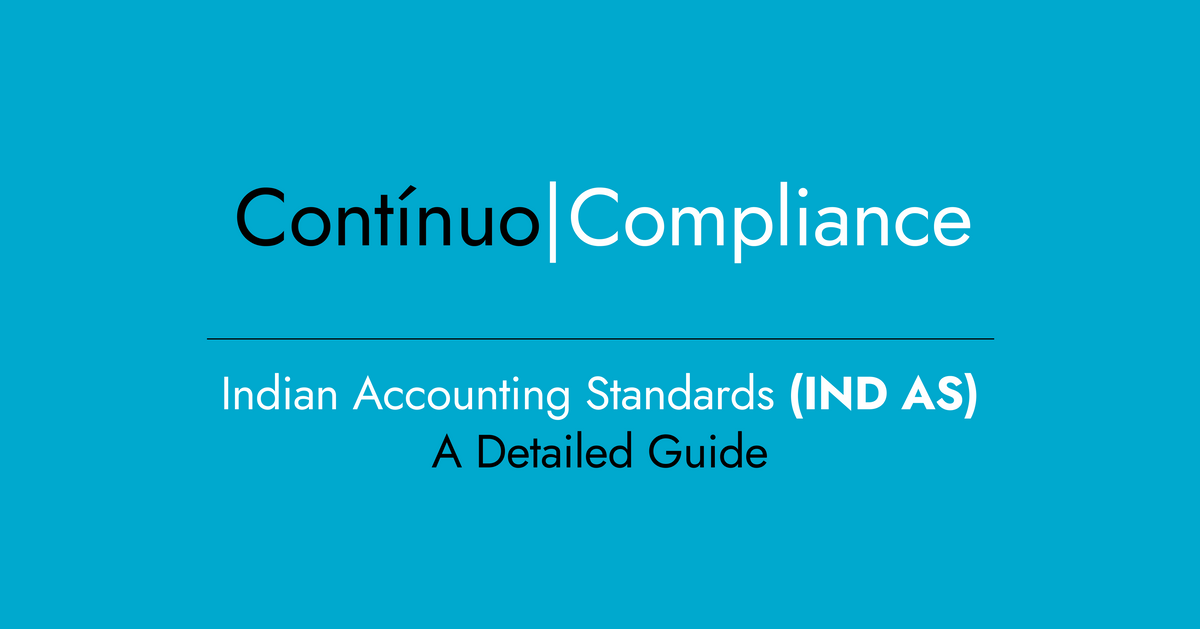IND AS

The Indian Accounting Standards (IND AS) are a set of regulations designed to standardize accounting procedures and policies in India. This post will offer a concise yet comprehensive understanding of IND AS, their history, applicability, objectives, benefits, and the need for their adoption.
What is Indian Accounting Standards (IND AS)
The Indian Accounting Standards, known as IND-AS, have been created to synchronize the International Financial Reporting Standards (IFRS), issued by the IFRS Foundation, with the Indian economic and legal environment. Notified under Section 133 of the Companies Act 2013, these standards primarily aim to enhance the transparency of annual financial statements in company accounts.
The IND-AS are issued under the supervision and control of the Accounting Standards Board (ASB) of the Institute of Chartered Accountants of India (ICAI) and in consultation with the National Financial Reporting Authority (NFRA).
History of Indian Accounting Standards (IND AS)
Before the introduction of IND AS, India relied on the Indian Generally Acceptable Accounting Principles (IGAAP), primarily composed of 18 accounting standards issued by the ICAI. IGAAP were the generally accepted accounting principles applicable in India, established by the Indian Institute of Chartered Accountants and under the Companies Act, 1956.
Who Issues Accounting Standards in India
The Institute of Chartered Accountants of India (ICAI), under the administrative control of the Ministry of Corporate Affairs, Government of India, is responsible for issuing the IND AS. To date, the Council of the ICAI has published 41 accounting standards.
The Accounting Standards Board (ASB), established in 1977 by the Council of the ICAI, recommends to the Government of India IND AS for notification under relevant statutes such as the Companies Act 2013 and Limited Liability Partnership Act, 2008. The ASB also issues Accounting Standards for noncorporate Entities in India.
Applicability of IND AS
In Budget 2015, the Ministry of Corporate Affairs (MCA) announced the recognition and adoption of IND AS by all Indian companies. Mandatory applicability of IND AS began on or after April 1, 2018. It applies to all listed companies under the Companies Act, 2013 and unlisted companies with a net worth of at least Rs. 250 billion but less than Rs. 500 billion. Note that once a company has adopted IND AS, either mandatorily or voluntarily, it cannot revert to the old accounting method.
Objectives and Benefits of IND AS
The objectives of IND AS include:
- Ensuring large-scale activities are properly accounted for through continuous disclosure, treatment, and reformation.
- Standardizing accounting policies and principles for the Indian economy.
- Providing a unified framework for the preparation of books of accounts and ensuring financial transparency.
- Ensuring that all institutions and governmental bodies are accepted globally.
The benefits of IND AS include:
- Simplifying and clarifying accounting information.
- Helping an accounting system be uniform.
- Providing acceptance on a global level.
- Facilitating comparison of financial statements.
- Assisting in auditing and preventing fraud and manipulation.
Need for IND AS Adoption
The need for adopting IND AS includes:
- Facilitating cross-border money flow.
- Facilitating global listing.
- Improving the global comparability of financial statements.
- Improving the investor’s ability to compare investments globally.
In conclusion, the adoption of IND AS is a step towards the standardization of accounting practices in India, aligning them with globally recognized principles. It aims to ensure transparency, credibility, and comparability in financial reporting, ultimately fostering investor confidence and contributing to the nation's economic growth.





